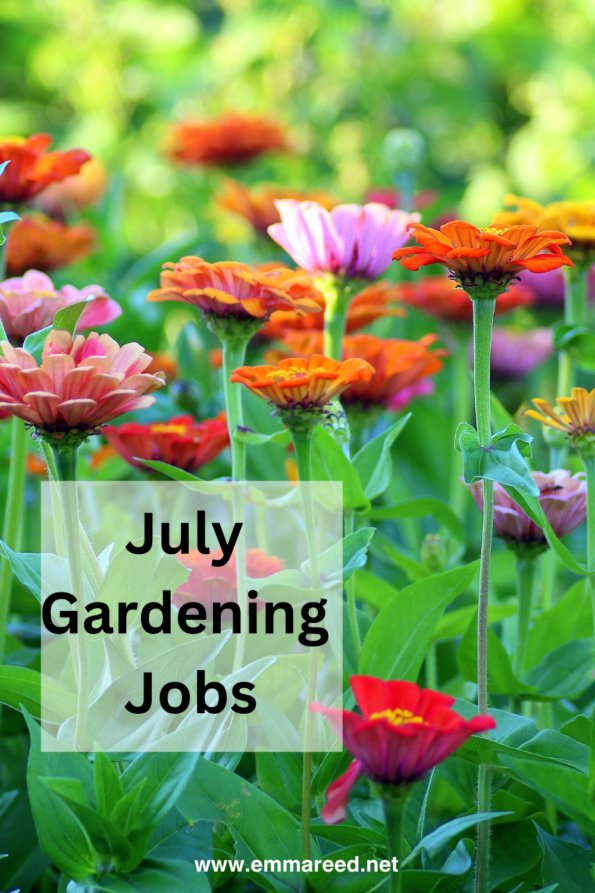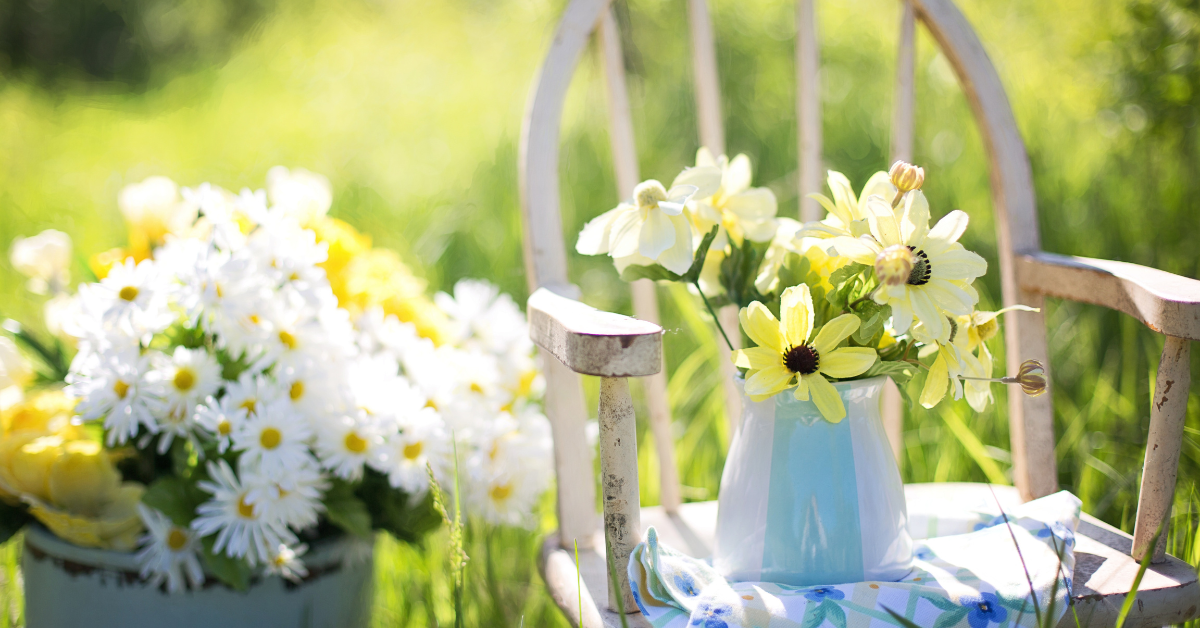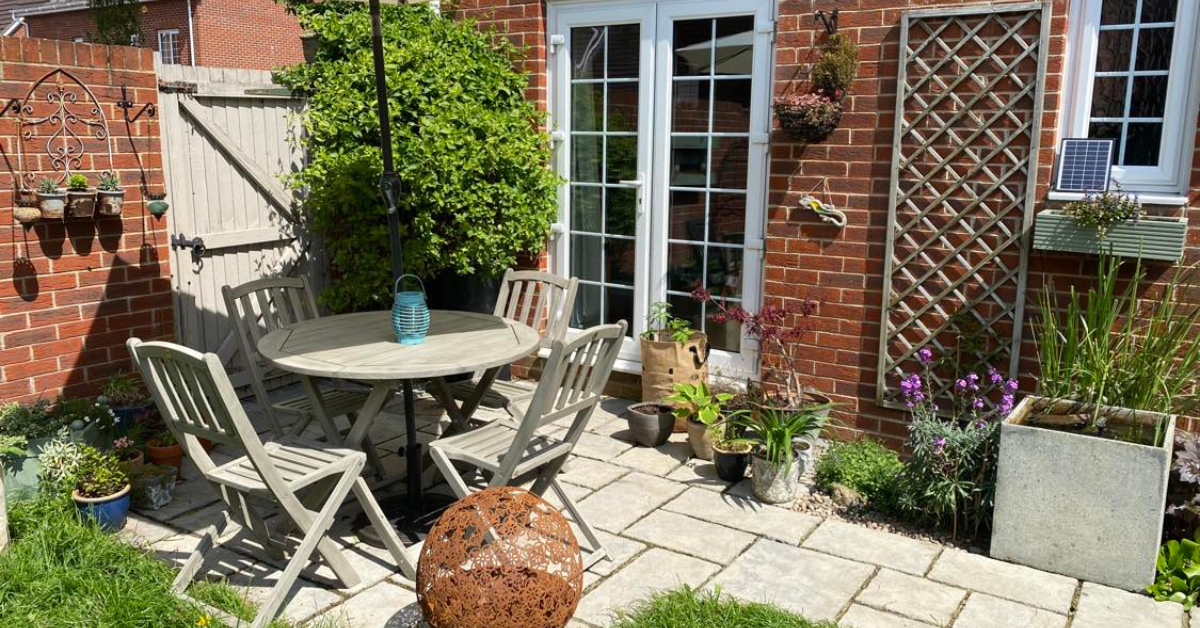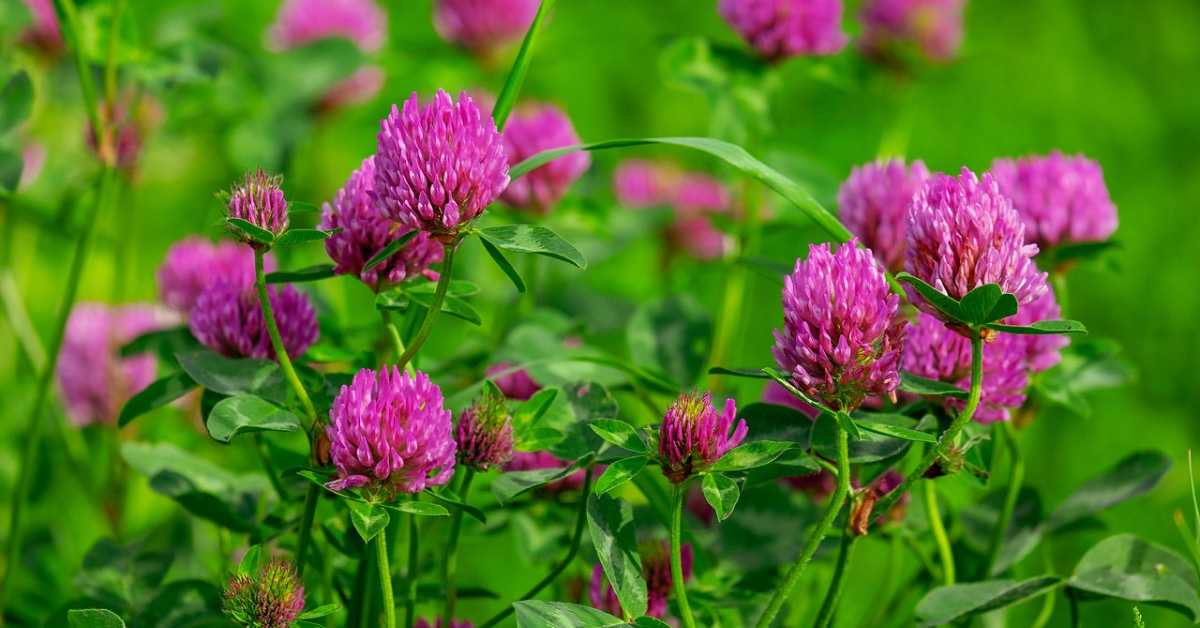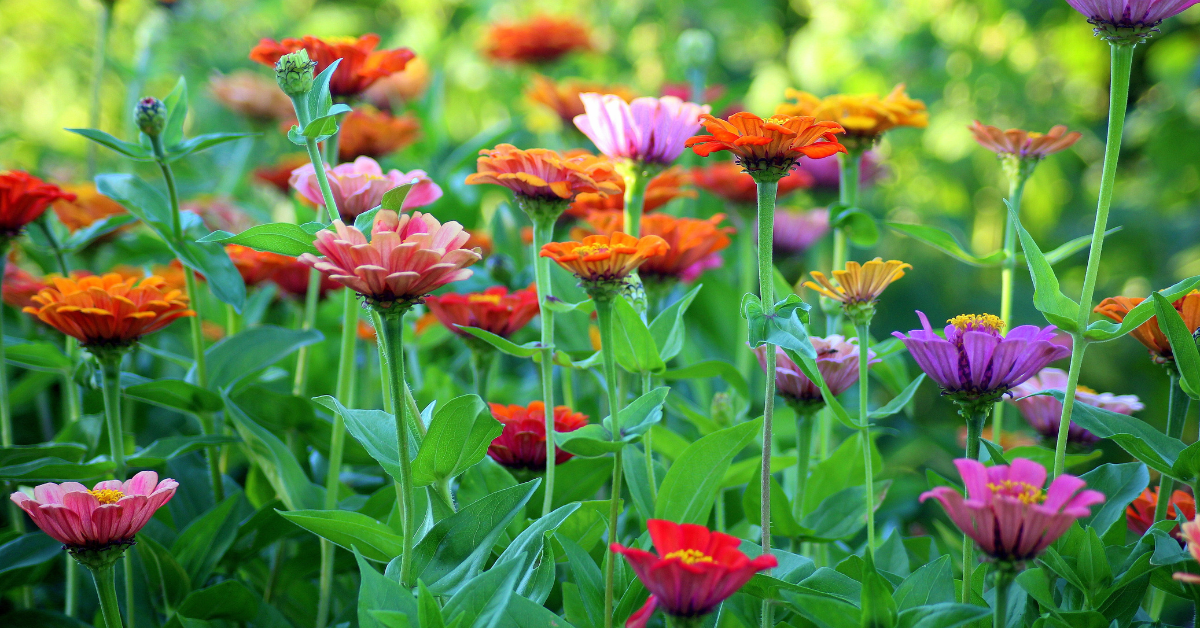
July Gardening Jobs

*Affiliate Links
July is here and it’s the time of year that many of us gardeners (whether novice or experienced) have been waiting for. The time for colour, growth, vibrancy and life and hopefully some fruits of your labour. It is, of course, also a time when gardens require diligent care to maintain all of this so let’s take a look at the essential July gardening jobs that you will need to focus your energy on…
Watering and Irrigation
July is typically one of the hottest months here in the UK, which means watering will become crucial. You should try your best to do:
- Early Morning Watering: Water your plants in the early morning to minimise evaporation and allow plants to absorb moisture before the heat hits.
- Deep Watering: Water deeply but less frequently to encourage deep root growth. This helps plants become more drought-tolerant.
- Mulching: Apply mulch around plants to retain soil moisture, suppress weeds and regulate soil temperature.
To help save on water use which will help both the environment and your pocket, try to use saved water from water butts/collectors from over the rainy months.
Weeding
Weeds compete with your plants for nutrients, water and also sunlight. Regular weeding is essential in certain parts of your garden – remember to keep some areas wild though.
- Hand Weeding: For small weeds, hand weeding is effective. Ensure you remove the entire root to prevent regrowth.
- Hoeing: For larger areas, use a hoe to cut off weeds at the soil surface. Do this on a dry day so the weeds die quickly.
- Paving Weeding: For paving, patio and pathway weeds why not try my homemade natural weedkiller?
- Mulching: As mentioned above, mulching helps suppress weed growth, reducing the amount of weeding needed.
Deadheading and Pruning
When certain flowers have bloomed and died back it is essential to tend to those to encourage new growth:
- Deadheading Flowers: Regularly deadhead spent flowers on bedding plants, perennials and roses to encourage continuous blooming.
- Summer Pruning: Prune shrubs like Wisteria, by cutting back the long, whippy growths. Also, summer prune fruit trees like apple and pear trees to shape them and remove any diseased or overcrowded branches.
Harvesting
July is a (fingers-crossed) bountiful month for harvesting:
- Vegetables: Harvest crops like beans, courgettes, cucumbers and tomatoes regularly to encourage more produce.
- Fruit: Soft fruits such as strawberries, raspberries and currants are usually ready for picking by now. Ensure you pick them as they ripen to prevent them from spoiling.
- Herbs: Harvest herbs such as basil, mint and parsley to encourage new growth.
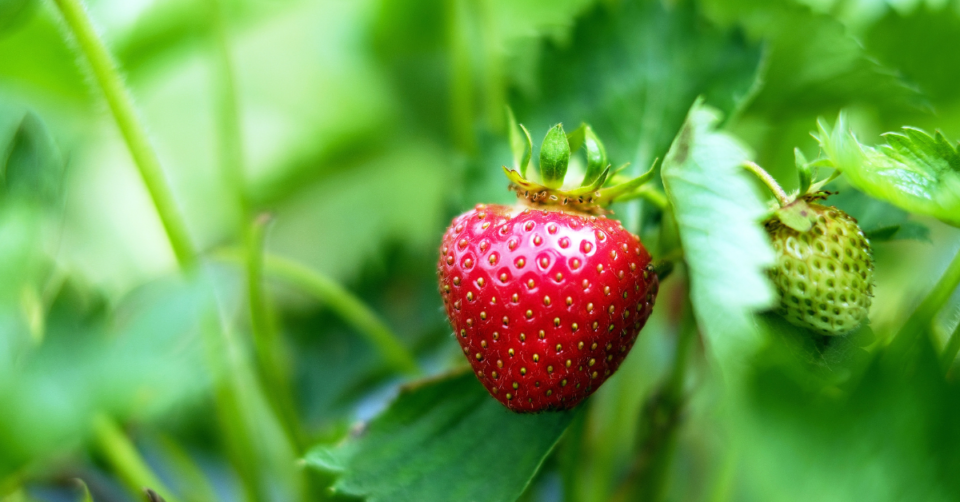
Did You Catch…
Pest and Disease Control
Warm weather can bring pests and diseases:
- Inspect Plants Regularly: Check your plants regularly for signs of pests and diseases. Remove what you can by hand (slugs, snails)
- Organic Pesticides: Use organic pesticides or natural remedies like soapy water for aphids.
- Netting: Protect fruit crops from birds with netting.
Lawn Care
Your lawn will need some attention during those warmer weeks in order to stay green and healthy:
- Mowing: Mow your lawn regularly, but avoid cutting it too short as longer grass is more drought-resistant.
- Watering: Water your lawn in the early morning if there is a prolonged dry spell.
- Feeding: Apply a summer lawn feed to keep your grass lush and green.
Planting for Autumn
While it might seem early, July is a great time to start thinking about autumn planting:
- Perennials: Now is the time to think about planting perennials such as echinacea, rudbeckia and asters for autumn colour.
- Vegetables: Sow seeds for autumn and winter vegetables like carrots, beetroot and kale.
Greenhouse Care
If you have a greenhouse, it may need extra attention in the heat:
- Ventilation: Ensure your greenhouse is well-ventilated and use shading to prevent overheating.
- Watering: Water plants regularly and consider installing an automatic watering system.
- Pest Control: Keep an eye out for pests like whitefly and spider mites and take appropriate measures to control them.
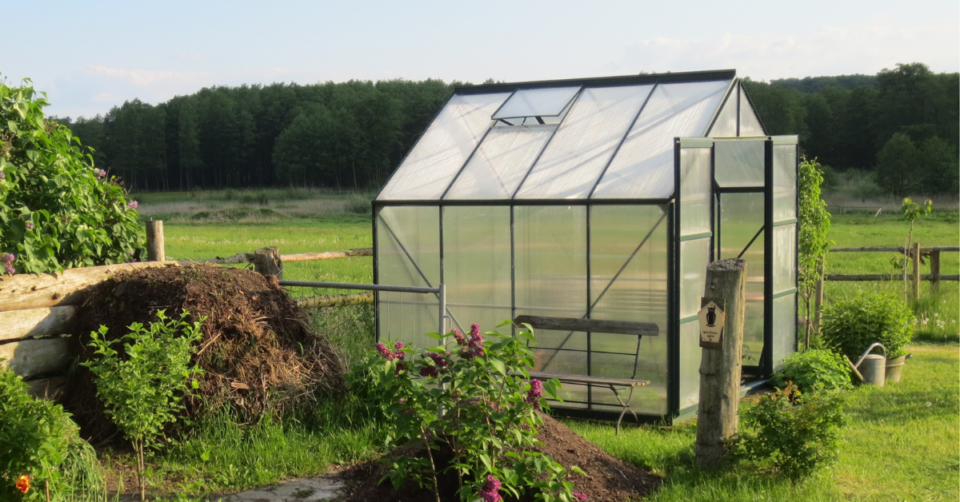
Pond Maintenance
If you have a pond, no matter how big or small July is the time to keep it in top shape:
- Remove Algae: Clear out any algae or blanket weed to keep the water clean. Always check this thoroughly for pond life such as snails.
- Top Up Water Levels: Refill the pond if the water level drops due to evaporation.
- Fish Care: Feed fish regularly but be careful not to overfeed as excess food can pollute the water.
- Wildlife Safety: The summer is a busy time of year for wildlife and as your visitors increase you need to ensure that your ponds have escape routes for those coming down for a drink. Use rocks, bricks, planting, ramps and logs to provide a way out of the water.
You May Also Like:
July is a busy but rewarding month for gardeners so do remember to take those quiet moments to sit back and just enjoy!

*This post contains affililate links which means I will earn a small commission when you purchase via them. This will not affect how much you pay or your shopping experience. For further information please refer to my disclosure page.
Pin for later:
